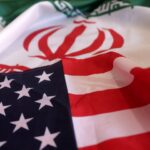
The United Kingdom and other “administering powers” should set aside their national interest to support self-determination for the Virgin Islands and the 16 other non-independent territories they control, according to VI Special Envoy Benito Wheatley.
Mr. Wheatley made the call at the recently concluded United Nations Pacific Regional Seminar on Decolonisation held May 21-23 in Dili, the capital of the southeast Asian country Timor-Leste.
“We all must work together to make progress on decolonisation,” Mr. Wheatley said during the meeting. “I know it is hard to separate national interests from the process, but an effort must at least be made to work in the best interest of non-self-governing territories.”
The 17 territories in question fall under the remit of the UN Special Committee on Decolonisation, known as the C-24, which is mandated to assist them in achieving a “full measure of self-government” and eradicating the vestiges of colonialism, according to the envoy.
“The Special Committee in its engagement with the administering powers should continue to make a priority of dispatching visiting missions where this is practicable,” he said. “The politics of the process is very complicated and requires dialogue, but no effort should be spared.”
VI visit
Mr. Wheatley also thanked the C-24 for its August 2024 mission to the VI, which assessed the progress of decolonisation and recommended full internal self-government and a timetable for independence.
Additionally, he called on UN agencies to support the territories in advancing sustainable development and climate resilience.
To that end, he asked the C-24 to adopt a draft UN resolution at its June substantive session that will permit UN agencies to utilise their regular programme budget on territories classified as small island developing states that are associate members of UN regional commissions such as the Economic Commission for Latin America and the Caribbean (ECLAC) and the Economic and Social Commission for Asia and the Pacific (ESCAP).
Order in council
Finally, Mr. Wheatley updated attendees on relations between the VI and the UK.
During that update, he called on the UK to lift the order in council that allows it to impose direct rule on the territory if the VI government doesn’t keep its promise to implement reforms recommended by the 2022 Commission of Inquiry report.
The envoy claimed that the VI has now completed the COI reform programme, leaving no excuse for the UK to keep in place the “unnecessary, undemocratic and blunt colonial instrument.”
Besides the VI, the UN list of non-self-governing territories yet to be decolonised includes American Samoa, Anguilla, Bermuda, the Cayman Islands, the Falkland Islands, French Polynesia, Gibraltar, Guam, Montserrat, New Caledonia, Pitcairn, St. Helena, Tokelau, the Turks and Caicos Islands, the United States Virgin Islands, and Western Sahara.
British Caribbean News


